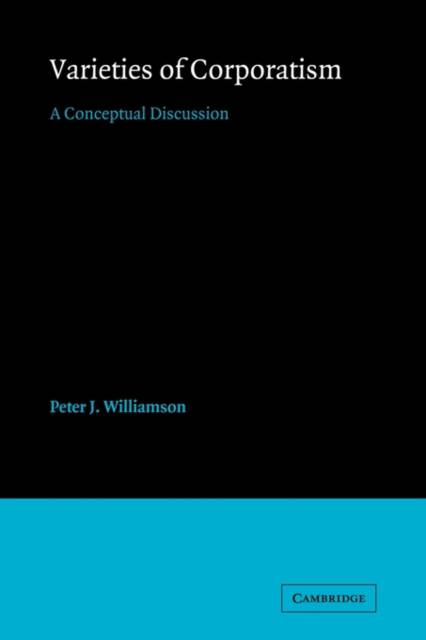
- Afhalen na 1 uur in een winkel met voorraad
- Gratis thuislevering in België vanaf € 30
- Ruim aanbod met 7 miljoen producten
- Afhalen na 1 uur in een winkel met voorraad
- Gratis thuislevering in België vanaf € 30
- Ruim aanbod met 7 miljoen producten
Zoeken
€ 64,95
+ 129 punten
Omschrijving
Originally published in 1985, this book provides a comprehensive discussion of the concept of corporatism. It seeks to develop models of the different types of corporatism against the background of a general model. It represents a systematic attempt to clarify, rather than simply discuss, the concept of corporatism in its various usages. It examines the three varieties of corporatism: a body of nineteenth- and twentieth-century prescriptive economic and social thought; the practice of certain authoritarian regimes with private ownership of the means of production and wage labour; and a theoretical tool of analysis employed to study relations between organised groups and the state in ostensibly liberal democracies. It draws on a wide range of historical and contemporary writing on the subject, and includes a detailed study of the ideas behind and nature of corporatism in Fascist Italy and in Portugal under Salazar and Caetano. The discussion of the varieties of corporatism is clearly related to debates in the social sciences on its nature.
Specificaties
Betrokkenen
- Auteur(s):
- Uitgeverij:
Inhoud
- Aantal bladzijden:
- 256
- Taal:
- Engels
Eigenschappen
- Productcode (EAN):
- 9780521125901
- Verschijningsdatum:
- 14/01/2010
- Uitvoering:
- Paperback
- Formaat:
- Trade paperback (VS)
- Afmetingen:
- 152 mm x 229 mm
- Gewicht:
- 381 g

Alleen bij Standaard Boekhandel
+ 129 punten op je klantenkaart van Standaard Boekhandel
Beoordelingen
We publiceren alleen reviews die voldoen aan de voorwaarden voor reviews. Bekijk onze voorwaarden voor reviews.








